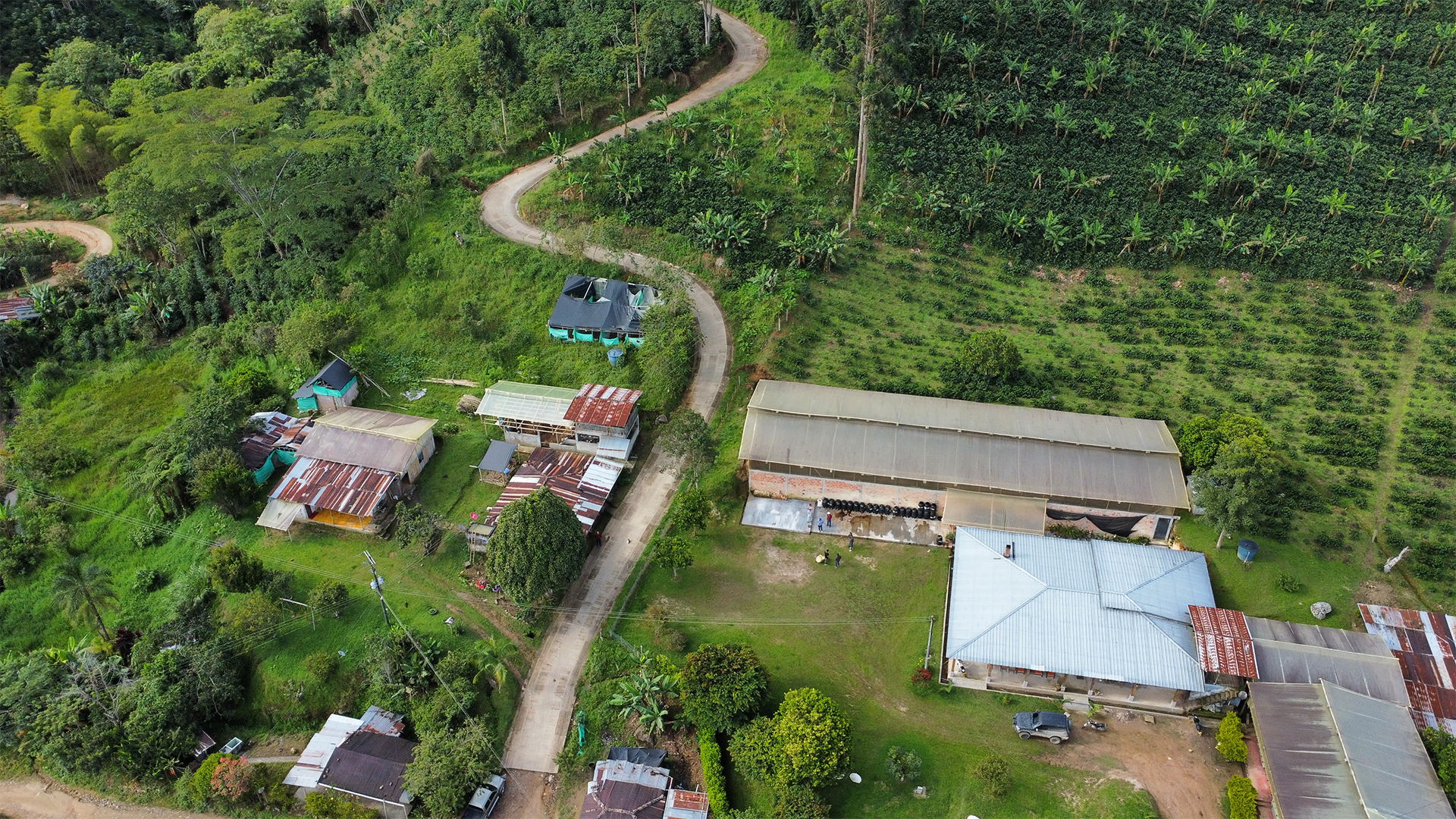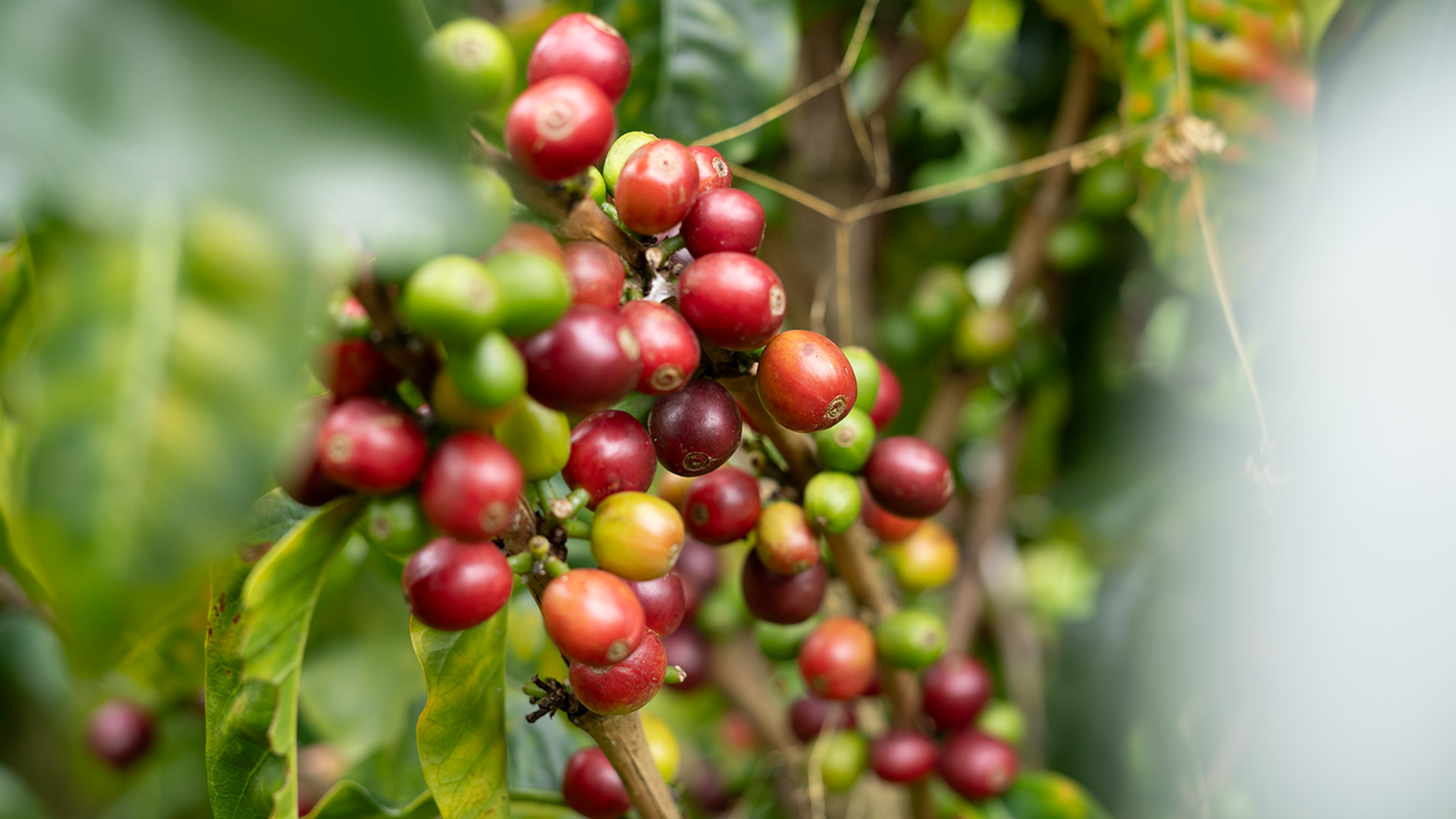rio bamisa
QIMA COFFEE X STANDART
リオ・バミサ
-
フレーバーノート:メロン、ミルクチョコレート、ラズベリージュース、ブラッドオレンジ
プロセス:ナチュラル・アナエロビック
品種:ゲイシャ
トレーサビリティ:アセベド < ウィラ < コロンビア
標高:1700–1800MASL
カテゴリー:コンペティション & 90+シリーズPROCESS:
Natural AnaerobicGENETICS:
GeishaTRACEABILITY:
Acevedo < Huila < ColombiaALTITUDE:
1700-1800 MASL -
Qimaのリオ・バミサシリーズを象徴するロットであり、ゲイシャ種の魅力を見事に表現した一品。
重厚なボディに、メロン、ブラッドオレンジ、ラズベリー、ミルクチョコレートの風味が溢れます。
バミサ川というアセベドの渓谷を流れる重要な水源にちなんで名付けられたこのシリーズは、この土地と生産者、そして高地のマイクロクライメットで育つ希少品種への敬意が込められています。
Qimaはこの地域で12〜20の小規模農家と協働し、定番品種に加え、ゲイシャ、プリミティーボ、オンブリゴン、カトゥロン、SL28、ブルボン・アヒなどの希少品種の栽培と実験的な取り組みを支援しています。
A shining star and staple of Qima’s Rio Bamisa series, and a stunning showcase of the Geisha variety. Heavy bodied, bursting with notes of melon, blood orange, raspberry and a milk chocolate finishNamed after the Bamisa River - a vital lifeline flowing through the valleys of Acevedo - this series is a tribute to the land, its producers, and the rare varieties that thrive in Colombia’s high-altitude microclimates. Working with 12-20 smallholder farmers in the region, who alongside their larger-volume coffees, have been experimenting with and cultivating exotic varieties such as Geisha, Primitivo, Ombligon, Caturron, SL28, and Bourbon Aji.
-
Qima Colombiaのコンペティション & 90+シリーズは、ゲイシャ、シードラ、チロソ、スーダン・ルメなどの希少品種をフィーチャーし、コロンビアの最高品質のコーヒーを紹介します。伝統的な手法と最先端のポストハーベストプロトコルを組み合わせた精製により、比類なき品質と風味を実現しています。
このシリーズは、コロンビアのコーヒー栽培の文化的遺産に敬意を表すると同時に、世界最高峰のコーヒー体験を求める人々のために創られました。
The Qima Colombia Competition and 90+ Series highlights the best of Colombian coffee, featuring rare varieties such as Geishas, Sidras, Chirosos, and Sudan Rumes. Processed using traditional methods and cutting-edge post-harvest protocols, these coffees deliver unparalleled quality and exceptional flavour profiles. This series is a tribute to Colombia’s coffee-growing heritage, crafted for those seeking a truly world-class experience. -
このゲイシャロットは、透明感と複雑さを高めることを目的に設計された、綿密に管理されたナチュラル・アナエロビックプロセスを経ています。
完熟した赤いチェリーを手摘みで収穫後、フローターを用いて欠点豆を除去し、さらに過熟豆や未熟豆を手作業で丁寧に選別します。その後、チェリーは洗浄され、GrainProバッグに密封された状態で、72〜96時間の嫌気性発酵が行われます。
乾燥はアフリカンベッドの上で15〜20日間(季節によって変動)かけて行い、水分値が10〜11%になるまで管理されます。すべての工程は、ゲイシャならではの華やかでフルーティーな風味特性を最大限に引き出すために設計されています。
This Geisha lot undergoes a meticulously controlled natural anaerobic process, tailored to amplify clarity and complexity.
After selective hand-harvest, ripe red cherries are floated to remove defects and manually sorted to eliminate overripe and underripe beans. The cherries are then washed and sealed in GrainPro bags for anaerobic fermentation lasting between 72 to 96 hours. Drying takes place on raised beds for 15 to 20 days, depending on the season, until the coffee reaches a final humidity of 10–11%. Each step is designed to preserve the coffee’s structure while unlocking the Geisha’s hallmark floral and fruit-laden profile. -
エチオピアの森で発見され、その後、中南米に導入されたゲイシャ(あるいはゲシャ)は、世界で最も評価の高いアラビカ種のひとつです。細長い形状の豆と低収量の反面、紅茶のようなフレーバー構成、華やかな花の香り、果実味豊かな風味が特徴です。
コロンビアにおいて、ゲイシャは高地のマイクロクライメットに適応し、アセベドのような地域でその真価を発揮しています。丁寧な栽培と精密なポストハーベスト管理により、そのポテンシャルを最大限に引き出すことが可能です。
競技会用バリスタや焙煎士にとって、ゲイシャは単なる特異な風味だけでなく、「シード・トゥ・カップ」に求められる技術と精度がその魅力でもあります。
Originally discovered in the forests of Ethiopia and later introduced to Central and South America, Geisha (or Gesha) is one of the world’s most celebrated Arabica varieties. Its long, slender beans and low yield are offset by an extraordinary cup profile, often featuring florals, tea-like structure, and expressive fruit notes.
In Colombia, Geisha has found a second home, thriving in high-altitude microclimates like those of Acevedo. With careful cultivation and controlled post-harvest techniques, producers can unlock its full potential, bringing elegance, clarity, and complexity to the cup.
Geisha remains a favorite among competition baristas and roasters worldwide, not just for its sensory distinction, but for the precision and care it demands from seed to cup. -
アセベド(Acevedo)
ウィラ県南部に位置するアセベドは、緑豊かな山岳地帯と活気あるコーヒー文化で知られています。高標高と多様なマイクロクライメットが、ゲイシャなどの希少品種の栽培に理想的な環境を提供しています。
地元のコミュニティはコーヒー生産に深く根ざしており、手先の器用さと実験的な精製技術で知られています。
火山性の豊かな土壌、近くを流れるバミサ川、そしてアンダキ山の恩恵を受け、このロットにはアセベドの自然と技術、革新性が詰め込まれています。
ウィラ(Huila)
コロンビア南部に位置するウィラは、その歴史、文化、そしてコーヒー品質の豊かさで知られる地域です。
ピハオ族やアンダキ族、ヤルコン族、パエセ族などの先住民族の故郷でもあり、サン・アグスティン遺跡(ユネスコ世界遺産)にはその文化的遺産が色濃く残っています。ウィラはコロンビア有数のコーヒー生産地で、特にスペシャルティコーヒーで名を馳せています。標高1,200〜1,800mの高地、火山性土壌、多様なマイクロクライメットの組み合わせにより、豊かで複雑な風味を持つコーヒーが育まれます。
2013年には、ウィラ産コーヒーが「地理的表示(PGI)」に登録され、国際的にも高い品質が認められました。農家の多くは小規模で、伝統的な農法を守り続けています。
また、ウィラではバンブーコ音楽や「サンフアネーロ・ウィレンセ」などの伝統文化が深く根付いており、首都ネイバでは「バンブーコ全国祭」が毎年開催されます。
地形は多様で、ネバド・デル・ウィラ(コロンビア最高峰のひとつ)などのアンデス高地から、マグダレナ川沿いの熱帯低地、さらには星空観察で人気のタタコア砂漠まで、さまざまな自然環境が広がっています。
ACEVEDO
Acevedo, nestled in the heart of Colombia’s Huila department, is a gem within the specialty coffee world. This region boasts high elevations, typically ranging from 1,200 to 2,000 MASL, which are ideal for growing coffee. The elevation, combined with rich volcanic soil, consistent rainfall, and a balanced climate, creates the perfect terroir for developing complex, high-quality coffees.Smallholder farmers in Acevedo primarily grow varieties like Castillo, Caturra, and Colombia. These varieties are well-suited to the region’s microclimates and are renowned for their balanced acidity, smooth body, and vibrant flavour notes. Farmers here employ both traditional washed and experimental processing methods, such as honey and natural processes.
-
2020年、Qima Coffeeはコロンビアへ事業を拡大し、キンディオ県にQima Colombia S.A.Sを設立しました。コロンビア進出の主な目的は、イエメンで築いたQimaの調達モデルを、より規模が大きく歴史ある生産国で展開し、そのモデルが世界中の小規模生産者にとって再現可能であり、かつスケーラブルであることを証明することにあります。
Qima Colombiaは、経験豊富な農家やコーヒーのプロフェッショナル達で構成された現地チームによって運営されており、「公正で持続可能なコーヒー」が必ずしも高価である必要はなく、また、影響力の限られたニッチな市場にとどまる必要はない、という考えを実践しています。
このようなビジョンのもと、Qimaでは今後も希少性の高いシングルバラエティ・ロットを取り扱いながら、日常的に使えるコーヒーやブレンド向けの、より大規模で手に取りやすいロットのソーシングにも、同等の力を注いでいきます。
In 2020, Qima Coffee made the decision to expand into Colombia and established Qima Colombia S.A.S in the region of Quindío. The principal driver behind Qima’s expansion into Colombia was to replicate Qima’s sourcing model from Yemen onto a larger, more established coffee origin and demonstrate the feasibility and scalability of Qima’s model to serve farmers globally.Qima established its Colombian operations under the management of a local team, composed of experienced farmers and seasoned coffee professionals. Qima Colombia seeks to demonstrate that equitable, sustainable coffee does not necessarily equate to expensive coffee, nor does it need to remain a niche sector with limited capacity for impact.
With that vision in mind, whilst Qima will naturally include exclusive, exotic, single-variety lots in its offering, it will place an equal focus on sourcing larger, more accessible offerings which can be used as everyday coffees or blend components.
-
今季のリオ・バミサ / ゲイシャは特にボディ感が強く、非常に鮮やかな酸味と豊かな複雑さを持ち合わせています。
私たちは、円錐形のドリッパーで抽出することで、このコーヒーの鮮やかさとアロマがより引き立つと感じています。使用器具:Origamiドリッパー + コーンフィルター
使用量:18g
挽き目:EK 10.3 / コマンダンテ 21〜22クリック(中挽き)
抽出比率:1:15
湯温:93〜94℃
抽出方法:
– 50g注いでブルーミング(30〜40秒待機)
– 1湯目:広めのスパイラルで70g(合計120g)、落ち切るのを待つ
– 2湯目:同様のスパイラルで80g(合計200g)、30秒待機
– 3湯目:中心に向けて70g(合計270g)抽出時間:2:50〜3:00
Rio Bamisa / Geisha / Natural Anaerobic
This season's harvest of Rio Bamisa Geisha is particularly heavy bodied and has a very vibrant acidity and lots of complexity. For us, we've found cone-based brews to amplify the coffees vibrancy and aromatics in the cup.
Device: Origami + Cone Filter
Dose: 18g
Grind: EK 10.3 / C40 21–22 clicks (medium)
Ratio: 1:15
Temp: 93–94°C
Method:
Bloom with 50g, wait 30–40 sec
First pour 70g in broad spirals (total 120g), allow drawdown
Second pour 80g in same motion (total 200g), wait 30 sec
Final 70g as a center pour (total 270g)
Brew Time: 2:50–3:00





